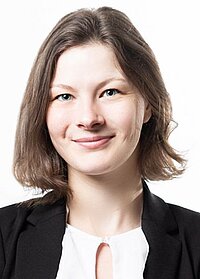Abstract Speaker
Dr. Caroline Barisch
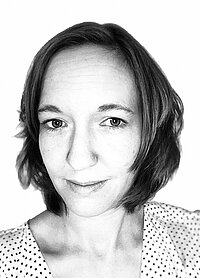
Caroline Barisch studied Biology at the University of Bayreuth and received her PhD from the University of Kassel in 2010. During her PhD in the lab of Prof. Markus Maniak she isolated lipid droplets from the model organism Dictyostelium discoideum and characterized the lipid droplet proteome.
In 2011, Caroline started her postdoc in the lab of Prof. Thierry Soldati at the University of Geneva, Switzerland. During the first years, she used the D. discoideum / M. marinum infection system to study lipid droplet dynamics during mycobacteria infection.
2016 she was promoted “maître assistante” and established several tools to monitor lipid flows from D. discoideum to intracellular mycobacteria. Besides lipid metabolism, Caroline also worked on zinc and ZnT transporters and their role in the bactericidal defense of D. discoideum and during mycobacteria infection.
In September 2019, Caroline started the junior research group Molecular Infection Biology at the University of Osnabrück, Germany. The main research interest of the group is to unravel the molecular mechanisms by which intracellular mycobacteria acquire host lipids.
Maria Batliner
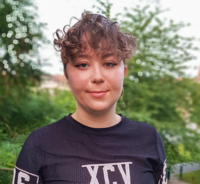
Maria Batliner received her BSc in Biomedical Science from the University of Essex, UK in 2018, and her Master’s degree in Biomedical Research from Imperial College London, UK in 2019. In 2020, she moved to Würzburg, Germany to do her PhD at the Institute for Hygiene and Microbiology in Prof. Oliver Kurzai´s department.
Maria’s research focuses on the quorum-sensing molecule farnesol, an acyclic sesquiterpene alcohol produced by the opportunistic pathogenic fungus Candida albicans. She is investigating the effects of farnesol on sphingolipid metabolism in human monocyte-derived dendritic cells and the molecular mechanisms underlying these effects.
Ingo Fohmann
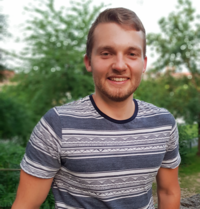
Ingo Fohmann graduated in food chemistry at the University of Würzburg in 2018. Afterwards he obtained his state-certification as a food chemist at the Bavarian food safety authority, where he worked on the automation of ELISA assays.
In 2020, he joined Prof. Alexandra Schubert-Unkmeirs lab at the Institute for Hygiene and Microbiology. As a PhD student of RTG2581, he is studying the sphingolipid metabolism at the blood-brain-barrier during infection with N. meningitidis. His current studies focus on the manipulation of the Sphingosine kinase/Sphingosine 1-phosphate/Sphingosine 1-phosphate receptor axis and down-stream effectors in brain endothelial cells by N. meningitidis and the identification of responsible bacterial virulence factors.
Enrico Garbe

Enrico Garbe studied biochemistry in Jena and currently in the final stages of my PhD in the research group "Host Fungal Interfaces" at ZIK Septomics in Jena.
My main scientific interest is the polymorphic, human pathogenic fungus Candida albicans, which is part of the natural human microbiome. The main focus of my work is on metabolic adaptations of the fungus that occur during or enable the transition to the pathogenic stage. For example, the use of different nutrient sources in the host or the stage-specific regulation of biosynthetic pathways.
Louise Kersting
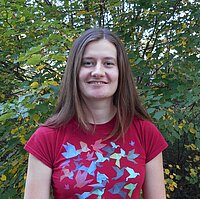
I did my bachelor studies in chemistry at the universities of Mulhouse (France) and Freiburg and moved to Würzburg for my master studies. Now, I am a 3rd year PhD student in the research group of Prof. Jürgen Seibel and an associate to the RTG2581.
My research focuses on acid sphingomyelinase and acid ceramidase activity in viral infections and the total synthesis of structures targeting these enzymes. I design functionalized inhibitors and sphingolipid analogs that can be stained with fluorescent dyes by bio-orthogonal reactions, aiming to study cellular distribution. My projects are carried out in interdisciplinary collaborations, combining chemistry, virology and microbiology as well as super-resolution microscopy. I believe that the chemical synthesis of functionalized sphingolipids and inhibitors is of great interest to the sphingolipid community and that the chemists’ perspective is significant for investigating biological processes.
Agata Prell

Agata Prell studied Chemistry at the Adam Mickiewicz University in Poznan and then Nutritional Science at the University of Potsdam. In 2021 she started her PhD at the Institute of Pharmacy at the Freie Universität Berlin in the group of Prof. Burkhard Kleuser.
The focus of her project is on analytical methods, especially mass spectrometry, for the identification and analysis of sphingolipids involved in infection. Currently she investigates the activity of sphingosine kinases, which regulate the balance of ceramides, sphingosine and sphingosine 1-phosphate. Abnormal sphingosine kinase expression and activity are found in various diseases, including viral and bacterial infections. Hence, modulation of their activity is a potential therapeutic target. Numerous inhibitors exhibiting a specificity against one or both of the two isoforms have been developed. However, off-target effects have been reported for a few of these compounds. The aim of the project is to investigate the effects of selected sphingosine kinase inhibitors on the entire sphingolipidome in different cell types in order to uncover further possible off-target effects.
Marcel Rühling
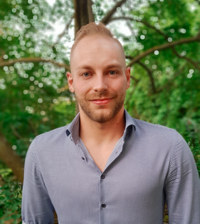
Marcel Rühling studied Biochemistry at the Julius Maximilians University of Würzburg. During his Bachelor studies he worked in the group of Prof. Dr. Jürgen Seibel on enzyme engineering of levansucrase SacB. He completed his Master’s degree in 2020 and conducted research for his Master thesis in the group of Martin Fraunholz at the Chair of Microbiology, where Marcel investigated the role of acid sphingomyelinase (ASM) in epithelial and endothelial cells during infection with Staphylococcus aureus. He continues to study the sphingolipid biology of this host-pathogen interaction in his PhD research.
In my research I investigated the role of ASM in plasma membrane repair of mammalian cells upon damage by the pore-forming staphylococcal α-toxin. Thereby, my colleagues and I observed that ASM was secreted by lysosomes of host cells in a Ca2+-dependent manner after treatment with α-toxin. This led to endocytosis of the damaged membrane areas and reestablishment of plasma membrane integrity. Interestingly, we also observed the internalization of S. aureus by its host cells to be dependent on Ca2+, ASM activity and plasma membrane sphingomyelin, whereas α-toxin was not required in this process. Thus, I am currently investigating the cell invasion mechanisms of S. aureus, its sphingolipid dependency and how the mode of pathogen internalization affects the outcome of intracellular S. aureus infection.
Romana Scheffel
I did my Bachelor's and Master's degree in Molecular Biotechnology in Vienna.
After that, I worked for about three years as a technician in R&D at the start-up Austrianni. The focus of Austrianni is the development of antibody-based therapies against tuberculosis.
In 2020, I decided to do my PhD and changed fields again. In the laboratory of my professor Wiebke Herzog, we are investigating the development of blood vessels with the help of the model organism zebrafish. My project focuses on the development of capillaries in the brain and the formation of the blood-brain barrier and how/if a functional blood-brain barrier is formed again during the regeneration of capillaries after a stroke, traumatic brain injury, etc. I am also working on the development of the blood-brain barrier.
Trushnal Waghmare

After completing my master's degree in Virology from the National Institute of Virology, Pune, India, I started working as a PhD student at the Institute of Virology and Immunobiology, University of Würzburg, Germany.
My research project aims to identify early targets and receptors involved in the activation of Neutral Sphingomylinease 2, induced by the Measles virus in T cells.
Jonas Weinrich
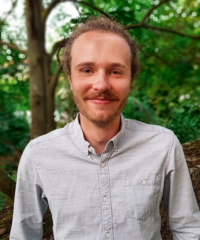
Jonas D. Weinrich studied Biochemistry at the University of Würzburg. During his master’s he spend a year in the group of André Hoelz at Caltech (USA), working on the membrane attachment of the Nuclear Pore Complex.
In 2020 he started his PhD in the group of Vera Kozjak-Pavlovic as a member of the DFG funded GRK 2581.
Here they are investigating the interplay of the host sphingolipid metabolism and the Chlamydia-related bacterium Simkania negevensis. S. negevensis is an environmental Chlamydiales member with a higher metabolic capacity than other Chlamydiae, which is associated with different respiratory diseases, like community acquired pneumoniae in children.
Jonas will present his ongoing research on the dependency of S. negevensis on the acidic sphingomyelinase and CERT-mediated ceramide transport. In contrast to other Chlamydiae, S. negevensis is not affected by the inhibition of the de novo synthesis pathway.


